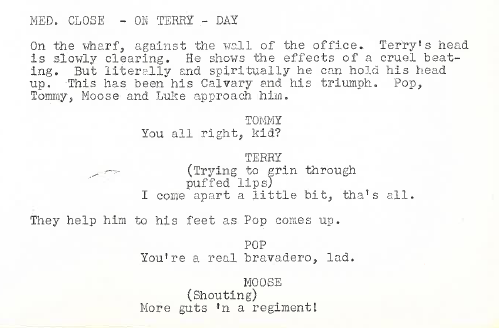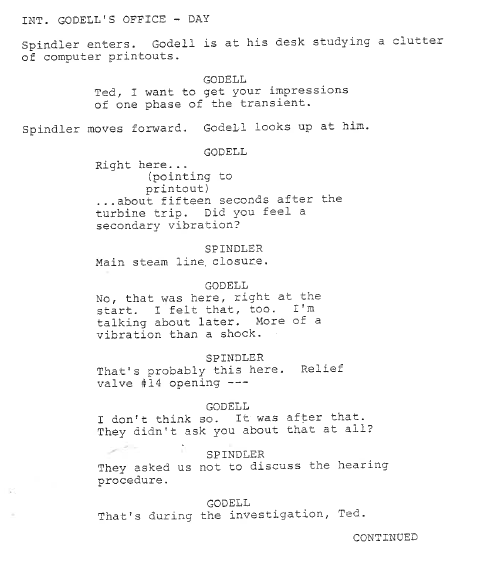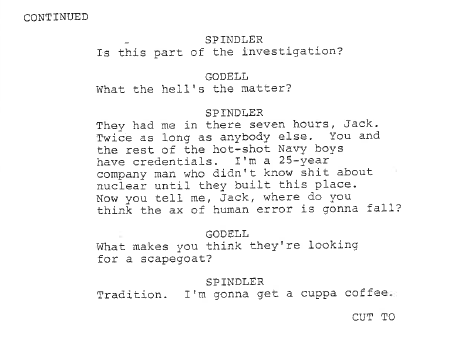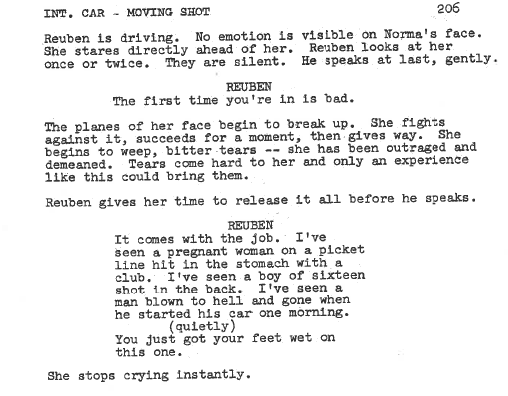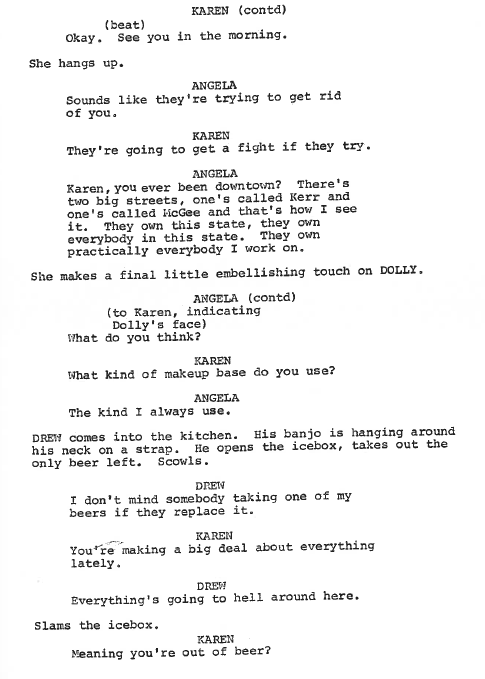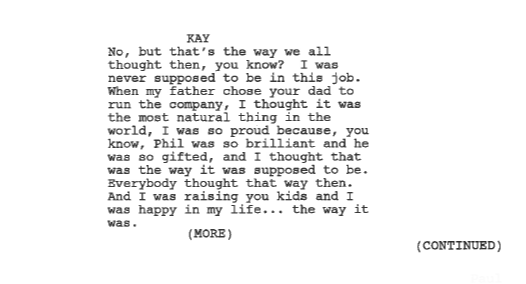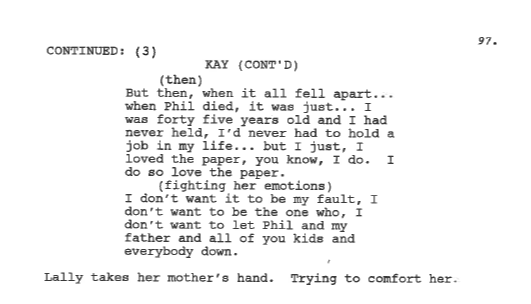Five Screenplays about Whistleblowers
With the word “whistleblower” and the concept of “whistleblowing” rising to the fore of collective consciousness this week, I thought it might be interesting to take a small dive into some scripts for what I consider to be seminal Whistleblower films.
Such films provide narratives about single individuals going up against all-powerful establishments to uncover the elusive truth and to make it more widely known. Indeed, movies about whistleblowers can serve as incredibly useful study guides for any writer looking to better understand how to construct a character arc. As characters, whistleblowers make impeccable heroes and heroines. They’re often deeply conflicted underdogs who start their respective stories serving the rich, powerful and corrupt, but as the plot unfolds, they often undergo births of conscience that spur radical (and moving) internal transformation.
When done well, these movies are often among the most inspiring films ever made. This is because we love stories about the major difference a single person can make when they realize what’s important, then risk everything to create necessary change, gaining dignity and self-value in the process—even if they lose everything else.
So if, as a screen storyteller, you find yourself staring into the endless abyss of tweets and headlines about corruption and lies, consider turning your frustration and hopelessness into a whistleblower movie or perhaps a whistleblower mini-series. We need more stories like these from all manner of writers. This is a list of some films that help to establish the tenets of this wonderful sub-genre. All of them are scripts you can find in the WGF Library.
ON THE WATERFRONT (1954)
Screenplay and Screen Story by Budd Schulberg
Based on “Crime on the Waterfront” Articles by Malcolm Johnson
The main character of Terry Malloy, I think, serves as one of the great whistleblower prototypes. He’s a slightly unsavory prizefighter who, in the beginning of the story, plays “D & D” or “Deaf and Dumb” to the extortion and racketeering of a power-abusing union representing longshoremen in Hoboken, New Jersey. In the beginning, he purposely throws away his own potential to cover for mob boss Johnny Friendly, but as the story progresses, he grows a conscience. I especially like the last page where he takes near-death beating for openly calling out Friendly for his corruption. As he’s on the ground and bleeding, the text eludes quite literally to how he’s gained his soul.
THE CHINA SYNDROME (1979)
Written by Mike Gray & T.S. Cook and James Bridges
A huge nuclear disaster ALMOST occurs while a young reporter and her crew are there filming an interview. The story is about how the power company refuses to let the reporters release the footage and tell the truth. Sound familiar? I watched this movie just before starting HBO’s Chernobyl this year. What really impressed me about it was how all the characters, not just the presumed good guy reporter characters went beyond their assumed archetypes to surprise us. Here’s a great bit of dialogue from two of the characters who work at the power plant.
NORMA RAE (1979)
Written by Irving Ravetch and Harriet Frank, Jr.
This is one of my all-time favorite movies and I’ve already blogged about it here, so I won’t talk ad nauseum about it now. Everybody fixates on the classic scene where Norma Rae, on the precipice of being dragged out of the textile mill where she works (for trying to copy down and expose a racist flier posted by her bosses) jumps onto a nearby table holding a hand-scrawled “UNION” sign. One of my favorite scenes occurs just after she’s dragged out of the mill, taken to jail and bailed out by her union rep, Reuben. It just very simply and quietly reveals the cost behind doing the right thing.
SILKWOOD (1983)
Written by Nora Ephron & Alice Arlen
Let’s say if The China Syndrome and Norma Rae were mixed together in a giant blender, out would come Silkwood. What I enjoy about this script in particular is that it sparks with dialogue from its co-writer Nora Ephron. It’s witty dialogue that wouldn’t be out of place in a witty rom-com like When Harry Met Sally, but here it captures and livens up subtle scenes amongst its working-class underdog heroes. I think you can see the thumbprint of this kind of warm, banter-y dialogue in later whistleblower movies like Erin Brockovich, North Country and Spotlight.
THE POST (2017)
Written by Liz Hannah and Josh Singer
William Goldman’s script for All the President’s Men is one of my favorites and I toyed with including it on this list, but I really appreciate how Liz Hannah and Josh Singer re-frame the well-known narrative of Carl Bernstein and Bob Woodward’s exposure of the Watergate scandal. They make it about Katharine Graham and her risking her family legacy and her position as the head of a major newspaper in order to print the truth. It’s the re-centering and looking at American history from a different angle that make this script feel different and fresh as compared to its aforementioned 20th century predecessors. And I love it.
As mentioned earlier, each of these screenplays is available to read in the WGF Library. To search the catalog and discover more scripts in our library, click here.

